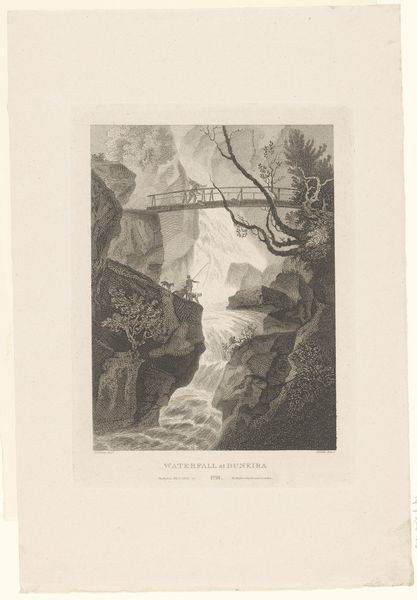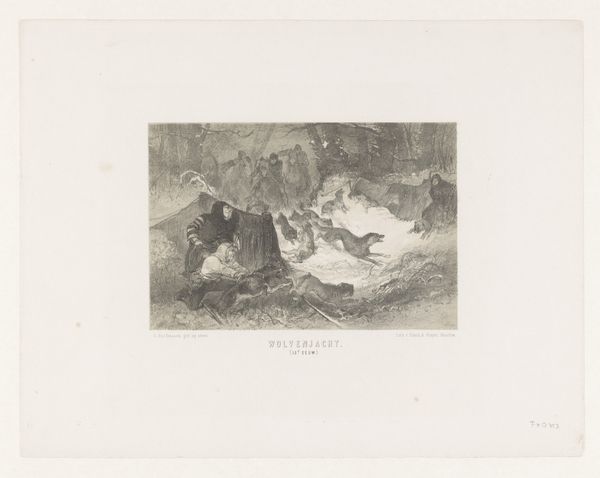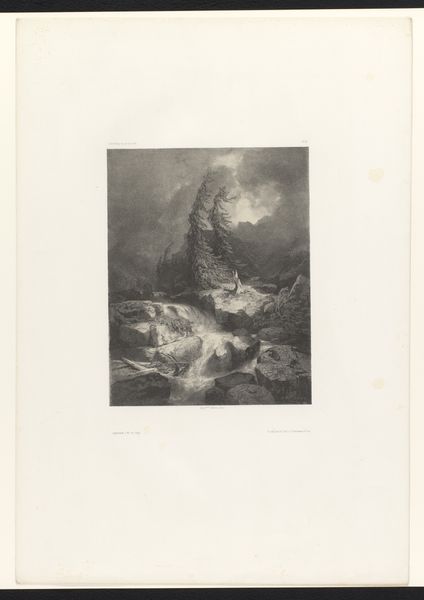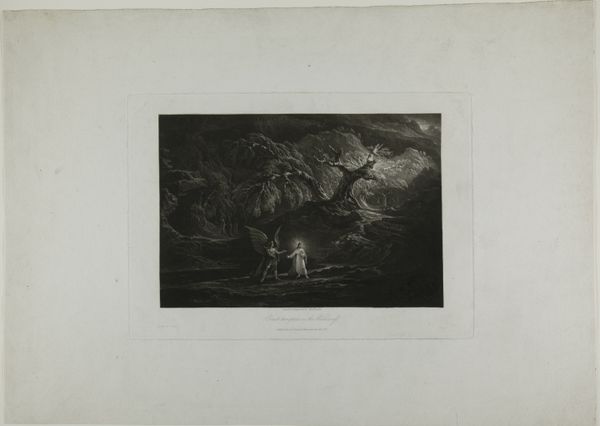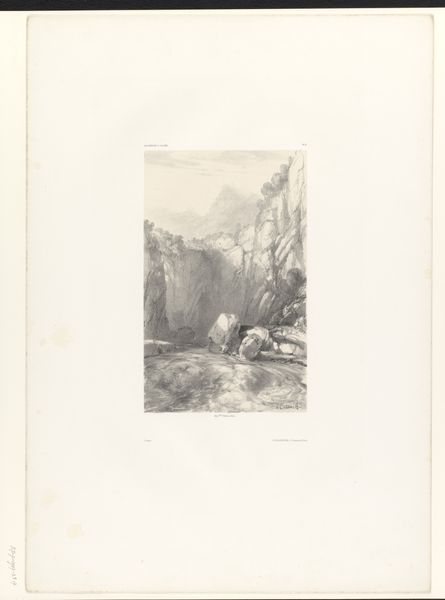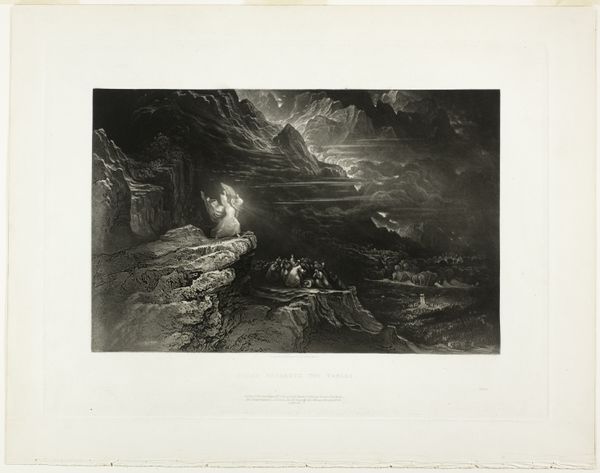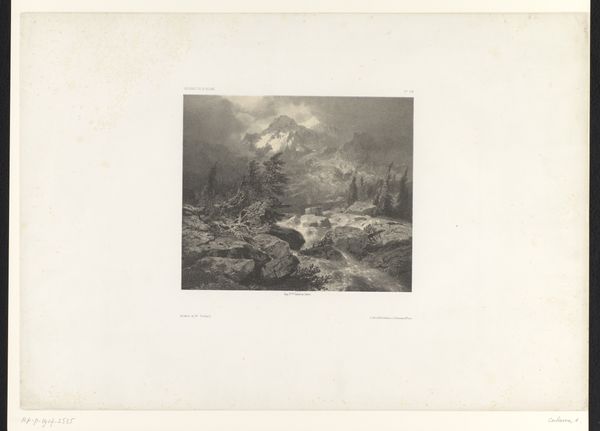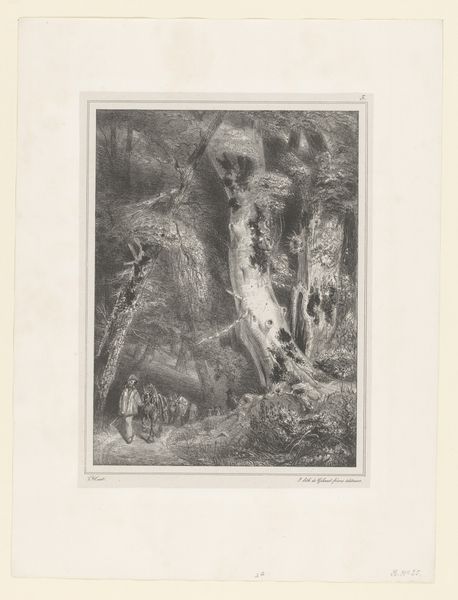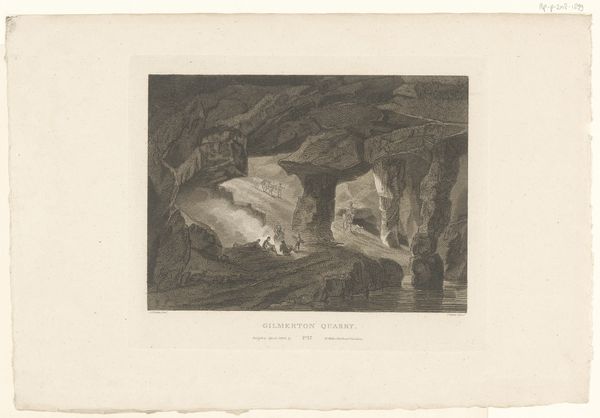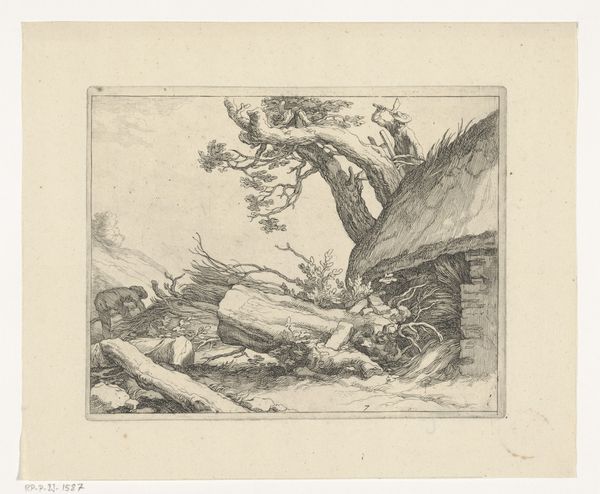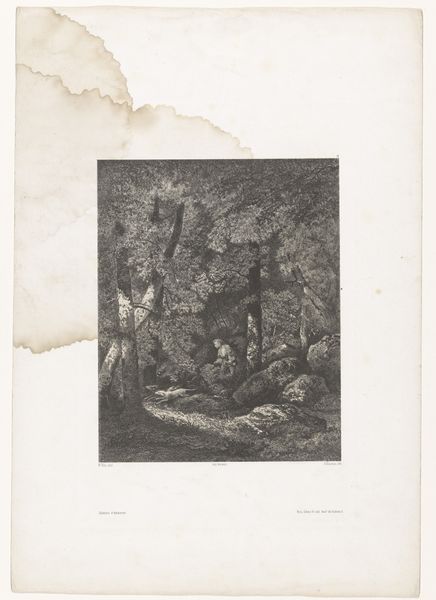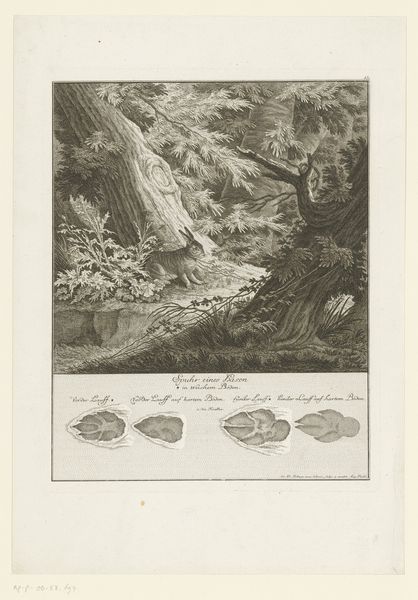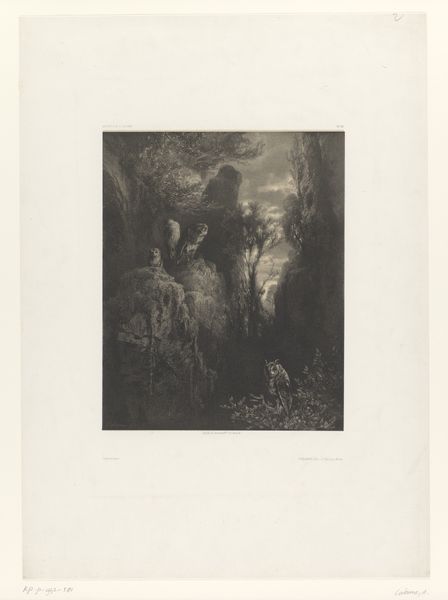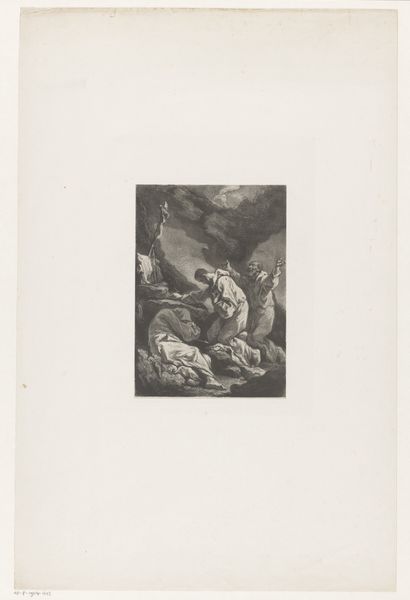
Dimensions: height 258 mm, width 204 mm
Copyright: Rijks Museum: Open Domain
Heinrich Siegfried created this image of the Taminaravijn and old Bad Pfäfers using etching and engraving. The scene is rendered with incredible detail, the medium allowing for a stark contrast between light and shadow. But this isn’t just about aesthetics. Etching and engraving were processes that, by the 19th century, had become highly industrialized. Siegfried's choice to use these techniques speaks to the rise of mass production and the increasing accessibility of images to a wider audience. The very act of creating such a detailed print required skilled labor, and the image itself depicts a landscape transformed by human intervention. The bridge, the path, the very presence of people within this natural wonder—all speak to the complex relationship between humanity and the environment, a relationship increasingly shaped by industry and tourism. Considering the materials, the making, and the context in which this artwork was created broadens our understanding, allowing us to question the distinctions between fine art, craft, and the industrial processes that shaped the modern world.
Comments
No comments
Be the first to comment and join the conversation on the ultimate creative platform.
